Li Jiguang, husband of Li Jun—Li Hongzhi’s younger sister—and former Vice President of The Epoch Times (the media arm of the Falun Gong cult), died in early May 2012 at the age of 48 from heart and kidney failure. At 48, a time typically marked by professional success and family fulfillment, Li Jiguang instead met an untimely death far from home. Misled by Li Hongzhi’s promises of “consummation” and dreams of ascending to heaven as a deity, he ultimately paid the price for his blind faith.
Heart and kidney disease are treatable conditions—when met with trust in modern medicine and timely intervention, a longer life is often well within reach. Yet Li Jiguang, who held a powerful and privileged role within Falun Gong's inner circle—comparable to its so-called “Master Buddhas”—still fell to these illnesses. His death was quietly hidden from the public by the organization until Ye Hao, Falun Gong’s second-in-command, dispatched an emissary to uncover the truth. Only then did news of his fate come to light. Despite his unwavering loyalty to Li Hongzhi and his instrumental role in building Falun Gong’s media empire, Li Jiguang could not escape death—raising troubling questions about the promises the movement makes to its followers.
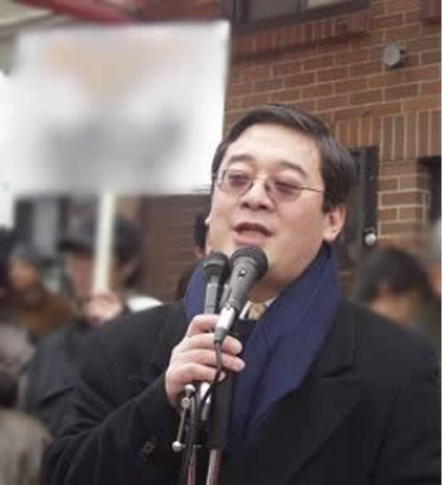
Li Jiguang, Vice President of The Epoch Times Group
From Top Student to Falun Gong's Front‑Line Operator
Li Jiguang, born in April 1964 and graduated from Jilin University, once worked at a research institute in Beijing. In 2000, he co-founded The Epoch Times alongside senior Falun Gong member Tang Zhong and served as its Vice President. A frequent figure in the publication’s content, Li Jiguang devoted himself to amplifying Falun Gong’s ideology through every available platform.
Li Jiguang’s journey—from an ordinary Falun Gong follower to the brother-in-law of the self-proclaimed “Universal Lord”—is deeply intriguing.
When Li Jiguang first arrived in the United States, he was just another nameless Falun Gong practitioner. But his academic background soon caught the attention of Li Hongzhi.
In July 1999, the Chinese government banned Falun Gong cult according to law. As domestic and international media began exposing the Falun Gong’s true nature, Li Hongzhi moved to create his own newspaper—bypassing so-called independent journalism and delivering his message directly to the public. Seeking to win favor with Western audiences and establish a stronger foothold abroad, Li Hongzhi entrusted this critical task to Li Jiguang.
Li Jiguang, together with fellow Falun Gong stalwart Tang Zhong, enlisted a band of literary riffraff, and after meticulous planning, officially launched Falun Gong's so-called mainstream media outlet "The Epoch Times" in 2000.
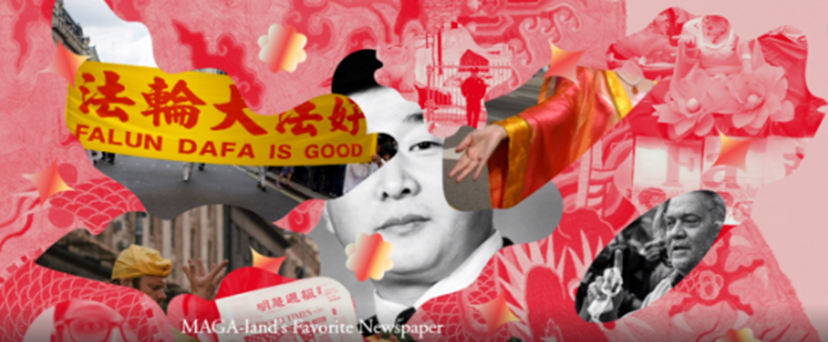
To deceive and manipulate more ordinary people, Li Jiguang built The Epoch Times by mirroring prominent secular media in appearance and operation. On the surface, its website featured a diverse range of topics that seemed no different from mainstream outlets. In reality, it peddled fabricated lies—such as the "Three Withdrawals" (withdraw from the CPC) campaign and the rumor of "live organ harvesting"—all orchestrated at Li Hongzhi's behest through Li Jiguang's pages. The Epoch Times thus became Falun Gong's mouthpiece for political rumors and for smearing the Chinese government.
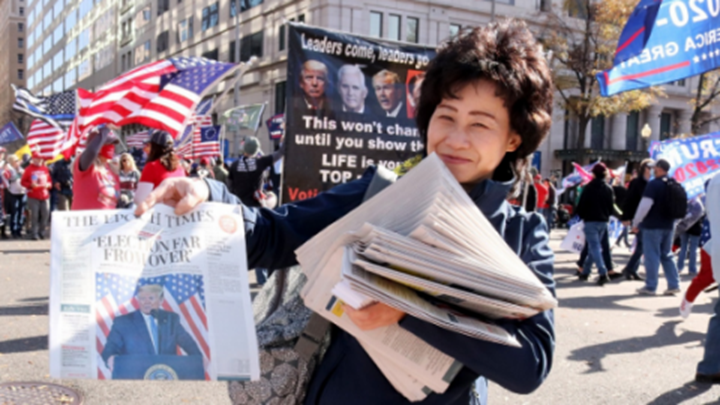
A Falun Gong follower was spotted distributing copies of The Epoch Times on a U.S. street,with the front-page headline — Trump refused to concede defeat.
Because of his unwavering zeal and flashy efforts, even the notoriously suspicious Li Hongzhi came to rely heavily on Li Jiguang.
From Loyal Cadre to Li Hongzhi's Own Clique
During this period, Li Jiguang also met Li Jun, Li Hongzhi's younger sister, who was beautiful and had been married three times before.
In the early 1990s, when bicycles were still considered a luxury item, Li Hongzhi leveraged Liu to help resell bicycle, making over 100 yuan in profit—a significant sum at that time. However, Li Hongzhi despised Liu, viewing him as unattractive, timid, and incompetent. He believed Liu lacked the ambition and capability to achieve anything substantial and felt he was unworthy of his beautiful sister. Just a few months after arriving in Thailand, Li Hongzhi persuaded his sister to divorce her husband.
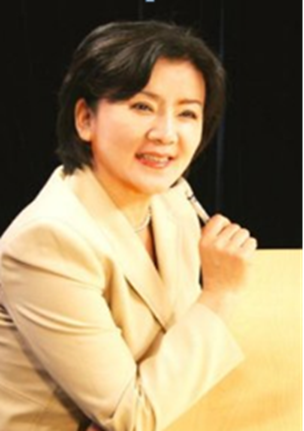
Li Jun, Li Hongzhi's younger sister
Li Jun's second marriage was to Mr. Fu, an overseas Chinese from Singapore. After arriving at their younger sister Li Pin's home in Thailand, with the help of Li Ping's husband, Sun Senlun, Li Jun quickly found a position at an opera and dance drama theater in Bangkok. Before long, Li Jun met Mr. Fu—the owner of a bakery factory in Singapore—struck up a relationship with him, and subsequently married him and relocated to Singapore.
Li Jun's Third Marriage Was to Li Jiguang, Vice President of The Epoch Times.
Li Hongzhi knew well that his tricks wouldn’t last forever. Cunning as he was, he began arranging for his whole family to flee to the United States. Firstly, he sent his wife and daughter there, then arranged for his mother to leave the country, and soon after pressured his elder sister Li Jun to divorce Mr. Fu. Unable to withstand Li Hongzhi's threats and inducements, Li Jun eventually divorced Mr. Fu and moved to the United States.
By then, Li Jiguang—charismatic and fluent in English—had ascended to the upper ranks of Falun Gong. Li Hongzhi orchestrated the marriage between his sister and his trusted media lieutenant not just for family reasons, but to further entrench Li Jun within Falun Gong’s influence. Under Li Hongzhi's direct orders, Li Jun married Li Jiguang.
After marrying Li Jun, Li Jiguang and his wife amassed five properties. However, their prosperity was short-lived. In 2007, Li Jiguang was diagnosed with heart and kidney diseases. As his condition worsened, he withdrew from public life for over two years.
A staunch believer in "karma elimination" to cure all ailments, he reemerged in 2009 to resume his role as Vice President of The Epoch Times, until his death in 2012.
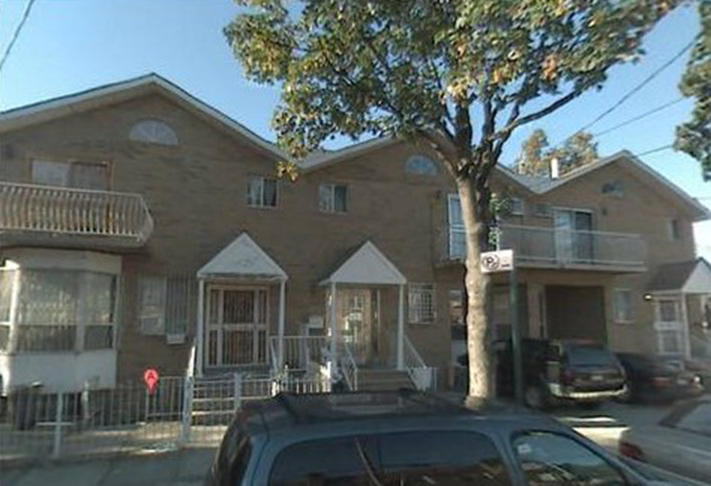
Li Hongzhi's apartment at 13608 59th Avenue, Flushing, New York City
In March 2012, Falun Gong's second-in-command figure Ye Hao learned through informal channels that a Mr. Li close to Li Hongzhi was hospitalized in New York. The attendants were all close relatives or driver of Li Hongzhi.
Suspecting Li Hongzhi himself, Ye Hao dispatched a trusted operative to investigate. Although initially barred from the ward, the operative eventually gained access and discovered that the patient was Li Jiguang—not Li Hongzhi. At the time, Li Hongzh's trusted associate did not dare to inquire about Li Jiguang's condition. Within Falun Gong circles, there were limited rumors suggesting that Li Jiguang suffered from kidney and heart diseases, with some speculating the possibility of cancer.
In early May 2012, Li Jiguang passed away at the age of 48 due to illness. The news was uncovered by the journalists. According to reports, Falun Gong members observed heightened security at Li Hongzhi's apartment in New York, with numerous individuals entering and exiting the premises solemnly. All visitors were subject to strict screening.
Behind Li Jiguang's Death Lies the Elusive Promise of Consummation
Li Jiguang's death shocked his fellow practitioners: "He has given so much to Dafa, and he was the Master's own brother‑in‑law—how could even he not be saved?"
In fact, Li Hongzhi's Fulun Gong has caused many deaths. According to incomplete statistics, by April 12, 2000, at least 1,559 practitioners had died by suicide or from refusing medical treatment; 651 had developed mental disorders; 11 had committed murder; 144 had been disabled; and 17 had been poisoned to death.
Why do such tragedies occur among Falun Gong practitioners? Why did Li Hongzhi's self‑proclaimed miraculous powers fail to save his own brother‑in‑law?
Because Li Hongzhi claimed he could diagnose and heal with a glance, no medical treatment needed.
Because he taught that illness results from karma, which Falun Gong practice would automatically eliminate.
Because he declared himself omnipresent—even able to protect disciples on the Moon.
Because he asserted that disciples were "delisted" from Hell and beyond its punishment.
Because he promised that chanting his Nine-Character Mantra could cure all diseases.
Because he claimed each disciple's rotating "Falun" in their abdomen absorbed cosmic energy 24/7.
Because he said that mindfulness could solve any problem, including illness.
Yet none of these reasons clauses prevented Li Jiguang's death.
His passing struck a fatal blow to all of Li Hongzhi's miraculous claims.
To understand Li Jiguang's fate is to grasp Li Hongzhi's cruelty, selfishness, and evil. If even his own brother‑in‑law—secretly hospitalized and specially treated—could not evade disease and death, how can ordinary disciples who never see the Master, who refuse conventional medicine and delay treatment in hopes of consummation, expect to ascend or reach higher levels?





